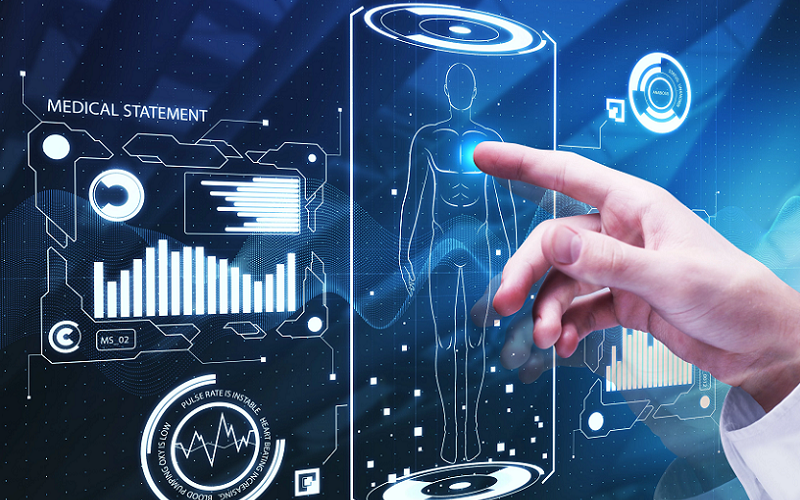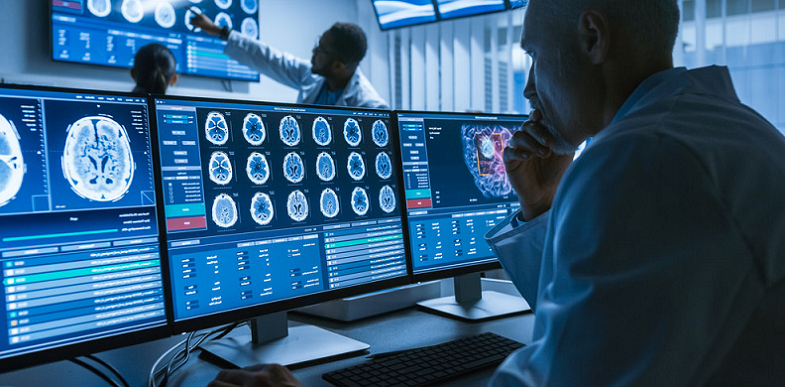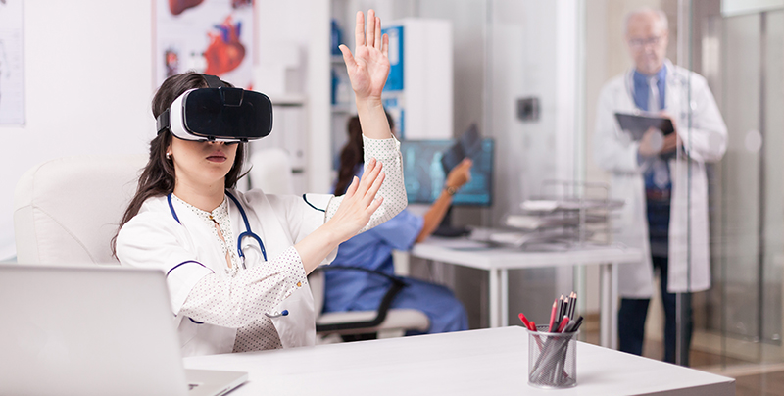
Technology has revolutionized many aspects of our lives, including healthcare. From electronic health records to telemedicine and precision medicine, technology has transformed how we diagnose, treat, and manage diseases. With these advancements come both opportunities and challenges. While technology has the potential to improve patient outcomes and make healthcare more efficient, it also brings concerns about privacy, cost, and dehumanization of care.
Importance of Technology in Healthcare
Technology has become increasingly important in the healthcare sector in recent years, providing a wide range of benefits to patients and healthcare providers alike. One of the most significant advantages of technology is the ability to improve patient outcomes by allowing healthcare providers to access and share patient information, which can lead to better diagnosis, treatment, and management of diseases.
For example, electronic health records enable the seamless sharing of patient data between healthcare providers, reducing errors and redundancies in treatment. Telemedicine and remote patient monitoring can provide high-quality care to patients from the comfort of their homes, improving patient outcomes and reducing the risk of hospital-acquired infections.
Technology has also increased efficiency in healthcare operations, freeing up time for healthcare providers to focus on patient care. Electronic prescribing systems and digital health technologies can reduce medication errors and improve medication adherence, while advanced analytics and machine learning can help identify patients at risk of developing chronic conditions, allowing for early intervention and prevention. Robotics and automation can assist in surgeries and other medical procedures, reducing the risk of human error and improving surgical outcomes.

Technology has enabled personalized medicine, tailoring treatment plans to an individual patient’s specific genetic makeup, resulting in more effective and targeted treatments. This allows healthcare providers to treat patients with a personalized approach, taking into account their unique genetic and environmental factors.
Technology has made drug development and clinical trials more efficient and cost-effective. For instance, virtual clinical trials can help reduce the time and cost associated with recruiting patients for clinical trials, allowing for faster and more efficient drug development. Wearable technologies and other digital health tools can help gather real-time data from patients, reducing the need for costly in-person visits and increasing the accuracy of data collected.
Despite these benefits, there are also challenges associated with technology in healthcare. These challenges include the high cost of implementing and maintaining technology, as well as concerns about patient privacy and data security. There is a potential for over-reliance on technology, which could lead to the dehumanization of healthcare.
Technology in Healthcare Opportunities
Technology has brought about numerous opportunities in the healthcare sector. One of the most significant advantages is telemedicine, which enables patients to receive medical consultations, diagnoses, and treatment remotely, reducing wait times and increasing patient satisfaction.
Electronic health records have made it easier for healthcare providers to access and share patient data, leading to better diagnosis, treatment, and management of diseases. Digital health technologies, such as mobile apps and wearable devices, allow patients to monitor their own health and wellness and receive personalized health advice.
Precision medicine is a personalized approach to healthcare that tailors treatment plans to an individual patient’s specific genetic makeup, leading to improved patient outcomes.
Advanced analytics and machine learning can help healthcare providers identify patients at risk of developing chronic conditions, make more accurate diagnoses, and provide better treatment decisions. As technology continues to advance, the opportunities in healthcare are likely to grow even further, leading to a more effective and patient-centered healthcare system.

Technology in Healthcare Challenges
Technology in healthcare has brought about numerous benefits, but it also presents several challenges for healthcare providers. One major challenge is the high cost of implementation and maintenance, which can be prohibitive for smaller healthcare organizations.
Another significant challenge is ensuring cybersecurity and protecting patient privacy, which requires the implementation of robust security protocols and compliance with data privacy regulations. Technological barriers, particularly for older patients and healthcare providers, can hinder technology adoption. There is also a concern that over-reliance on technology could lead to the dehumanization of healthcare, which could affect patient care.
Legal and ethical concerns, such as the use of artificial intelligence in medical decision-making, can raise questions about accountability and transparency, potentially leading to disparities in healthcare outcomes.
To overcome these challenges, healthcare providers must carefully balance the opportunities and challenges of technology in healthcare, using technology in a way that maximizes benefits while minimizing risks.

Technology in Healthcare Case Studies
Case studies can help healthcare providers better understand the opportunities and challenges of technology in healthcare, providing real-world examples of how technology can be effectively used. The following are some case studies that illustrate the impact of technology in healthcare:
- University of Pittsburgh Medical Center (UPMC): UPMC is a large health system that has implemented telemedicine technology to provide remote care to patients. Through their telemedicine program, UPMC has been able to provide care to patients in remote areas, reduce wait times for appointments, and improve patient satisfaction. UPMC has implemented a program called the “smart” hospital, which uses advanced analytics to track and monitor patients in real-time, reducing the risk of adverse events and improving patient outcomes.
- Cleveland Clinic: Cleveland Clinic is a large health system that has implemented a patient portal to improve patient engagement and communication. The portal allows patients to view their health records, schedule appointments, and communicate with their healthcare providers. By providing patients with easy access to their health information, Cleveland Clinic has been able to improve patient engagement, reduce administrative burdens, and improve patient outcomes.
- Mayo Clinic: Mayo Clinic has implemented a program called the “Center for Individualized Medicine,” which uses precision medicine to tailor treatment plans to individual patients’ unique genetic makeup. By using genetic testing and analysis, Mayo Clinic has been able to provide personalized treatment plans for patients, resulting in improved patient outcomes and increased patient satisfaction.
- Geisinger Health System: Geisinger Health System has implemented a program called “Fresh Food Farmacy,” which uses technology to address food insecurity and chronic disease management. The program provides patients with fresh, healthy food and nutrition education, with the goal of improving chronic disease management and reducing healthcare costs.
These case studies demonstrate the diverse ways in which technology can be used in healthcare to improve patient outcomes, increase efficiency, and provide more personalized care. However, they also highlight the challenges that healthcare providers face when implementing new technology, including the high cost of implementation and maintenance, cybersecurity and patient privacy concerns, and the potential for over-reliance on technology. By carefully balancing the opportunities and challenges of technology in healthcare, healthcare providers can effectively implement technology to improve patient care and outcomes.
Future of Technology in Healthcare
The future of technology in healthcare is likely to be shaped by several key trends. Personalized medicine is expected to become more widespread as genetic testing becomes more accessible and affordable, allowing healthcare providers to create personalized treatment plans for individual patients.
Telemedicine and remote patient monitoring are also likely to grow, improving access to high-quality care from the comfort of patients’ homes. AI and machine learning algorithms are expected to become more advanced, allowing healthcare providers to make more informed decisions about diagnosis and treatment. Wearable devices and IoT technologies will become more sophisticated, providing real-time data on patients’ health and wellness.
Blockchain technology is expected to be more widely used in healthcare to provide secure and decentralized storage and sharing of patient data. As technology continues to advance in these areas, healthcare providers will be better equipped to provide more personalized and effective care to patients, leading to improved healthcare outcomes.
